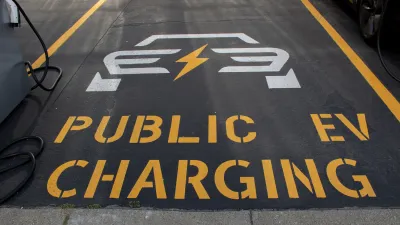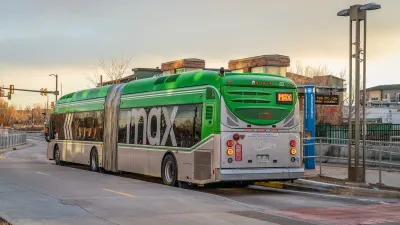A state audit criticized the agency for taking a haphazard approach to awarding contracts for major projects.

“The Colorado Department of Transportation’s increasing use of untraditional contracting approaches for large highway projects has been hampered by problems with how the deals are awarded, negotiated and managed, state auditors found in a recent report.”
Jon Murray reports on the story in The Denver Post, writing that “Critics contend these newer forms of contracting — used for work including the $1.3 billion Central 70 project in Denver and major widening projects on Interstate 25 south and north of metro Denver — favor larger companies, often from out of state, and risk costing taxpayers more.”
For its part, CDOT claims the new contracts save the agency time and money and improve the efficiency of projects. “It lets projects get started earlier than they usually would, and therefore get concluded earlier than they otherwise would. That is where the value is for the public,” said CDOT spokesman Matt Inzeo.
But the audit claims the agency doesn’t follow “sound, consistent and transparent processes” for awarding and carrying out contracts. “The audit also highlighted a case in which an unsuccessful bidder for the $419 million I-25 South Gap project south of Castle Rock was among three firms short-listed and evaluated, despite its proposal missing a required section.”
The agency ultimately agreed with the audit’s recommendations for improving contract oversight and management.
FULL STORY: Audit criticizes CDOT’s handling of contracts that abandon low-bid approach for some major projects

Maui's Vacation Rental Debate Turns Ugly
Verbal attacks, misinformation campaigns and fistfights plague a high-stakes debate to convert thousands of vacation rentals into long-term housing.

Planetizen Federal Action Tracker
A weekly monitor of how Trump’s orders and actions are impacting planners and planning in America.

San Francisco Suspends Traffic Calming Amidst Record Deaths
Citing “a challenging fiscal landscape,” the city will cease the program on the heels of 42 traffic deaths, including 24 pedestrians.

Defunct Pittsburgh Power Plant to Become Residential Tower
A decommissioned steam heat plant will be redeveloped into almost 100 affordable housing units.

Trump Prompts Restructuring of Transportation Research Board in “Unprecedented Overreach”
The TRB has eliminated more than half of its committees including those focused on climate, equity, and cities.

Amtrak Rolls Out New Orleans to Alabama “Mardi Gras” Train
The new service will operate morning and evening departures between Mobile and New Orleans.
Urban Design for Planners 1: Software Tools
This six-course series explores essential urban design concepts using open source software and equips planners with the tools they need to participate fully in the urban design process.
Planning for Universal Design
Learn the tools for implementing Universal Design in planning regulations.
Heyer Gruel & Associates PA
JM Goldson LLC
Custer County Colorado
City of Camden Redevelopment Agency
City of Astoria
Transportation Research & Education Center (TREC) at Portland State University
Jefferson Parish Government
Camden Redevelopment Agency
City of Claremont





























